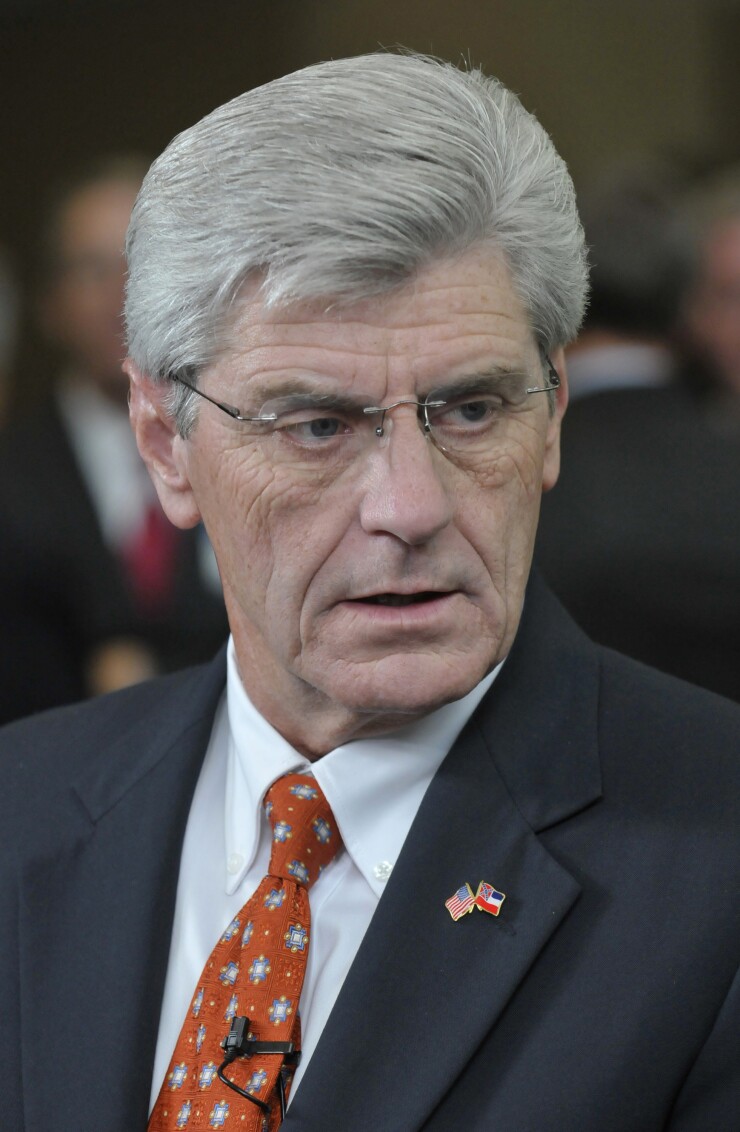Mississippi will consider creating a lottery, diverting casino sports betting taxes, and issuing bonds to raise revenues for the state’s cash-strapped road and bridge program.
Gov. Phil Bryant issued a proclamation calling lawmakers into a special legislative session starting Thursday to review the proposed legislation. It didn’t specify when the session would end.

“Using revenue generated by internet sales taxes, sports betting, electric and hybrid vehicle user fees and a state lottery, the Mississippi Infrastructure Modernization Act will provide more than $200 million annually to meet Mississippi’s infrastructure needs,” Bryant said.
Bills detailing the specific measures proposed by Bryant were not available Wednesday. Lawmakers are expected to discuss expanding internet sales tax collections as a result of the June 21 U.S. Supreme Court decision in South Dakota v. Wayfair Inc., allowing states to require out-of-state online retailers to collect sales tax.
Bryant’s proclamation for the session calling for the creation of the Mississippi Infrastructure Modernization Act would redirect a portion of the use tax on internet and mail-order sales to state Department of Transportation, and to a local bridge program the state usually funds from general revenue.
The act also allows for revenues to be leveraged with bonds to fund emergency road and bridge repairs.
Bryant declared a state of emergency April 10, ordering the immediate closing of 83 locally owned bridges because they were deemed deficient by the federal National Bridge Inspection Standards and the state. At the time of Bryant’s announcement, 16 counties were affected.
Since then, the number of affected counties has risen to 22.
Moody's Investors Service said on April 10 that the deteriorating infrastructure is a credit negative for the state and counties responsible for funding maintenance.
“We expect that the two levels of government will need to make immediate and long-term improvements in collaboration with one another and share some of the financial burden,” said Joseph Manoleas, the Moody's analyst.
According to the U.S. Department of Transportation, 2,008 — or 12% — of the state’s 17,012 bridges are structurally deficient.
“This share is higher than the nationwide state median of 9% of all bridges,” Manoleas said.
Mississippi’s above-average rate of structural bridge deficiency combined with the state’s low wealth indicators, pose challenges to funding maintenance of the state’s infrastructure, he said.
In session earlier this year, lawmakers couldn’t agree on a comprehensive infrastructure spending bill, although they authorized $50 million in bonds for infrastructure projects.
The state estimated an additional $40 million to $50 million will be needed for local bridge repairs, in addition to about $400 million in extra recurring revenue each year for state infrastructure, road and bridge repairs, according to Manoleas.
Bryant’s recurring funding package for transportation includes creating a state lottery, which has been opposed by top lawmakers until recently. Mississippi is one of six states that don’t have lotteries.
Mississippi had $4.1 billion of outstanding general obligation bonds as of June 30, 2017, in addition to $221.7 million of limited obligation bonds secured by specific revenues that were previously issued for road and bridge projects.
Moody’s assigns an Aa2 rating to the state’s GOs. They are rated AA by S&P Global Ratings and Fitch Ratings.





